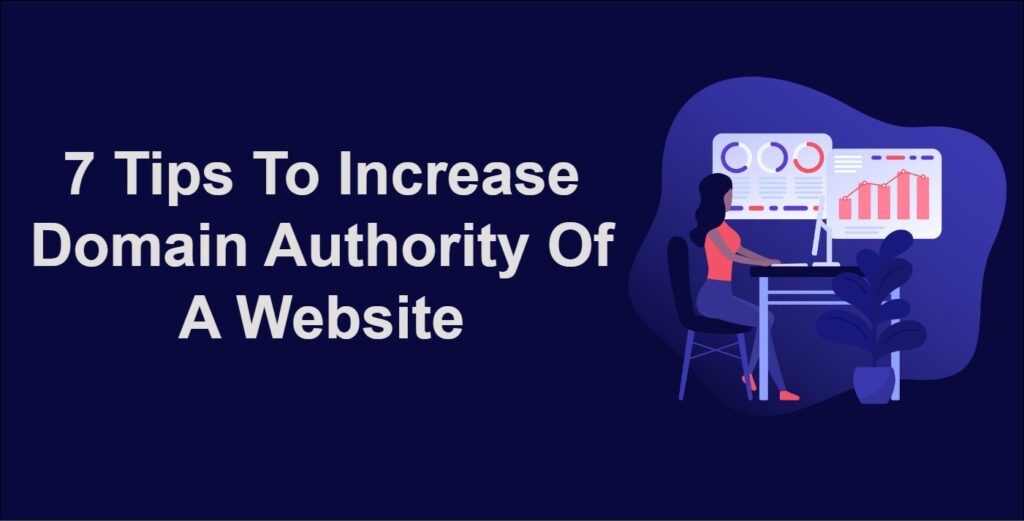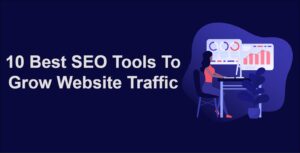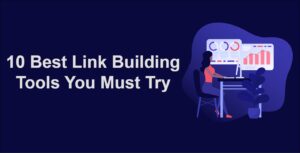Domain Authority reflects your website’s reputation in the digital landscape, guiding your efforts to enhance credibility, visibility, and, ultimately, search engine rankings.
Tips to Increase Domain Authority guide empowers your online presence, elevating rankings and credibility. By creating high-quality content, building a solid backlink profile, and optimizing your website for search engines and users, you can steadily improve your domain authority and attract organic traffic.
Increasing domain authority is not an overnight process. It takes time, consistency, and dedication to see tangible results. Focus on providing value to your audience, earning natural backlinks, and optimizing your website for search engines and users. With perseverance and strategic implementation, you can elevate your website’s domain authority and achieve greater online success. Happy optimizing!
In this comprehensive guide, we’ll delve into 7 actionable tips that can help increase your website’s domain authority and drive organic traffic to new heights.
What is Domain Authority
Domain Authority is a critical metric in search engine optimization (SEO). It quantifies the credibility and influence of a website in search engine rankings. Developed by Moz, Domain Authority predicts how well a website will perform in search results, considering factors like backlink quality, quantity, and other SEO elements.
How A Website Domain Authority Calculated?
To calculate Domain Authority, complex algorithms analyze various factors and assign a score between 1 and 100. The higher the score, the stronger a website’s ability to rank competitively against similar sites.
For example, if your website covers fitness and receives backlinks from renowned health magazines, its Domain Authority will increase. Conversely, low-quality backlinks can lower the score.
How To Increase Domain Authority
1. Create High-Quality, Relevant Content
Content is the backbone of your website’s domain authority. Focus on creating high-quality, relevant, and valuable content that resonates with your target audience. Conduct thorough keyword research and incorporate LSI keywords to address users’ search intent. Engage your readers with compelling headlines, engaging introductions, and well-structured content that keeps them coming back for more.
5 Ways to Produce High Quality Content:
1.1.Thorough Research and Original Insights:
Conduct thorough research to provide unique insights and valuable information.
For instance, if you’re writing about “Healthy Breakfast Ideas,” research various nutritious recipes and share your personal experiences trying them. This approach offers originality and usefulness to your audience.
1.2. Audience-Centric Approach:
Understand your audience’s interests and tailor your content to their needs. If your target audience is interested in “Digital Marketing Strategies,” create a comprehensive guide that addresses specific challenges they might face. This audience-centric approach ensures your content is directly relevant to their concerns.
1.3. Visual Enhancements for Engagement:
Incorporate visuals to enhance engagement. When discussing “Home Workout Routines,” include step-by-step image guides for exercises. Visual aids not only clarify your content but also make it more appealing and interactive.
1.4. Expert Insights and Credible Sources:
Back your content with expert opinions and credible sources. For a piece on “Eco-Friendly Living,” include quotes from environmental experts and studies that support your suggestions. This approach builds trust and authority in your content.
1.5. Effective Storytelling for Relatability:
Use storytelling to connect with your readers emotionally. When writing about “Overcoming Procrastination,” share a personal anecdote about how you conquered procrastination and achieved a goal. Storytelling makes your content relatable and resonates with the audience’s own experiences.
2. Build a Strong Backlink Profile
Backlinks are crucial for domain authority. Aim to build a strong and diverse backlink profile from reputable and authoritative websites in your industry. Focus on earning natural backlinks through compelling content, outreach, and networking with other bloggers and influencers.
2.1 What are High-Quality Backlinks
High-quality backlinks are from reputable and relevant sources act as endorsements for your content, signaling to search engines that your website is a valuable resource. Conversely, low-quality or spammy backlinks can have detrimental effects, potentially leading to search engine penalties.
A diverse backlink profile includes links from various domains, encompassing a mixture of authoritative websites, industry influencers, and niche-specific platforms. This diversity showcases the breadth of your website’s value and relevance across different corners of the internet.
2.2 How To Get High-Quality Backlinks
Guest Posting on Authority Sites:
Guest blogging on reputable websites and collaborating with influencers can boost your website’s authority. By contributing valuable content to other platforms, you increase your brand visibility and attract new audiences. Collaborating with influencers can lead to valuable backlinks and increased domain authority.
One effective way to obtain high-quality backlinks is through guest posting on authoritative websites in your niche. Write valuable, informative content that aligns with the host site’s audience. Include a relevant link to your website in your bio or within the article.
For instance, if you’re an SEO expert, contribute an in-depth guide on an SEO-focused website, like “The Ultimate Guide to On-Page SEO Optimization.” This provides readers with valuable insights while earning you a credible backlink.
Build Relationships and Outreach:
Establish connections with influencers, bloggers, and webmasters in your industry. Engage with their content and initiate a relationship-based outreach. You can offer to collaborate on a project, contribute a guest post, or provide them with valuable insights.
If you specialize in digital marketing, you might reach out to a prominent marketing blog with a pitch like
“5 Trends That Will Shape Digital Marketing in 2023.” By offering unique perspectives, you build rapport and secure authoritative backlinks.
Create Exceptional Content:
Crafting exceptional, link-worthy content can naturally attract backlinks. Develop comprehensive resources, infographics, or in-depth studies that provide substantial value to your audience.
For instance, if you’re in the health and fitness niche, you could create a detailed guide titled
“The Science Behind Effective Weight Loss Strategies.” This type of content encourages other websites to link to yours as a credible reference.
3. Optimize On-Page SEO
On-page SEO plays a significant role in increasing domain authority. Optimize your website’s meta titles, meta descriptions, and headings with target keywords. Ensure your website’s structure is user-friendly, with easy navigation and well-organized content.
3.1 Keyword Optimization
Optimizing keywords strategically is essential. Research and select relevant keywords for each page. For instance, if you’re writing a blog post about “Healthy Smoothie Recipes,” incorporate keyword variations naturally throughout the content. This ensures search engines understand your content’s topic and intent.
3.2 Meta Tags and Descriptions:
Crafting compelling meta tags and descriptions enhances click-through rates. If your page is about “Beginner’s Guide to Yoga,” ensure your meta title and description accurately reflect the content. This encourages users to click while helping search engines understand your page’s context.
3.3 Image Optimization:
Optimize images with descriptive alt text. If your content is about “Home Workout Routines,” use alt text like “Home workout with dumbbells for the upper body” for images. This boosts accessibility and aids search engines in interpreting visual content.
By implementing these strategies, you ensure your on-page SEO is well-optimized, improving your website’s visibility and rankings.
3.4. Improve Page Loading Speed
A website’s loading speed directly affects user experience and search engine rankings. Optimize your website’s performance by compressing images, minifying CSS and JavaScript, and leveraging browser caching. A fast-loading website not only improves domain authority but also reduces bounce rates and keeps visitors engaged.
3.5 Enhance User Experience (UX)
A positive user experience is vital for increasing domain authority. Ensure your website is mobile-friendly, responsive, and easy to navigate. Organize content logically and provide clear calls-to-action to guide users through your website.
3.6. Secure Your Website with HTTPS
Website security is an important factor in determining domain authority. Switch to HTTPS, which encrypts data and enhances user trust. Search engines favor secure websites, which can positively impact to Increase your domain authority.
4. Utilize Social Media
Social signals can indirectly impact domain authority. Engage with your audience on social media platforms, share your content, and encourage social sharing. Increased social engagement can lead to more backlinks and improved brand visibility.
4.1 Content Promotion and Engagement
Share your website’s valuable content on social media platforms to attract a wider audience. Encourage likes, shares, and comments to boost engagement. Increased visibility and interactions can lead to more people discovering your content, potentially resulting in backlinks from other websites.
4.2 Networking and Influencer Outreach
Connect with influencers and industry peers on social media. By building relationships, you increase the chances of them sharing or linking your content. Collaborations and mentions from authoritative sources can contribute to improving your domain authority.
5. Foster Expertise, Authority, and Trustworthiness (E-A-T)
Google values websites with expertise, authority, and trustworthiness (E-A-T). Showcase your expertise by publishing well-researched and authoritative content. Highlight your credentials and accomplishments to build trust with your audience and search engines.
E-A-T is a framework used by search engines, notably Google, to assess the quality of web content. Expertise refers to the author’s knowledge of the topic, authoritativeness relates to the credibility of the content and its source, and trustworthiness pertains to the reliability and accuracy of the information presented.
5.1 E-A-T Significance for SEO and Rankings:
E-A-T is crucial for SEO as it influences how search engines rank content. Pages demonstrating high E-A-T are more likely to rank well in search results. Websites that establish authority showcase expert contributors, and provide accurate, trustworthy information gain higher visibility and credibility online.
5.2 Guide To Increase E-A-T
Author Profiles and Credentials:
Highlight the credentials and expertise of content creators. Include author bios that showcase their qualifications and experience in the subject matter. This builds authoritativeness and instills confidence in readers.
Credible Sources and Citations:
Reference reputable sources to support your content. Linking to authoritative websites and studies reinforces the reliability of your information. This practice demonstrates a commitment to accuracy and contributes to trustworthiness.
Editorial Standards and Fact-Checking:
Implement rigorous editorial standards to ensure accuracy and credibility. Fact-check all information before publishing to avoid misinformation and errors that could undermine trust.
Guest Contributions from Experts:
Invite recognized experts in your industry to contribute guest posts. Their association lends credibility to your website and content, boosting both authoritativeness and expertise.
6. Improve Internal Linking Structure
Optimize your website’s internal linking structure to improve user navigation and search engine crawling. Use descriptive anchor text and link relevant pages together to create a cohesive website structure.
Here are three key points to improve your internal linking structure on a website:
Relevance and Context:
Ensure internal links are contextually relevant to the content. Link to related articles, pages, or resources that provide additional value to the reader. For instance, if you’re discussing “Healthy Breakfast Recipes,” you can internally link to an article on “Nutritious Ingredients for a Balanced Diet.”
Anchor Text Optimization:
Use descriptive and relevant anchor text for your internal links. Instead of using generic terms like “click here,” employ anchor text that reflects the content you’re linking to. For example, if linking to a guide about “Effective Time Management,” use anchor text like “Mastering Time Management Techniques.”
Hierarchy and Structure:
Organize your internal linking hierarchy logically. Important pages should have more internal links; you can use categories or silos to group related content together. This helps search engines understand the importance and relationship between different pages on your site.
7. Monitor and Analyze Your Progress
Keep track of your domain authority and other relevant metrics using tools like Moz’s Link Explorer or Ahrefs.
Monitor your progress and identify areas for improvement. Analyze which strategies are working best and adjust your approach accordingly.





